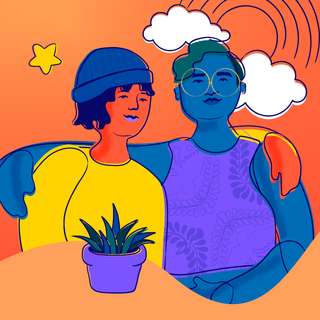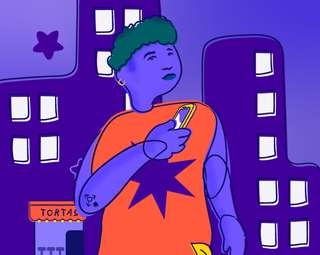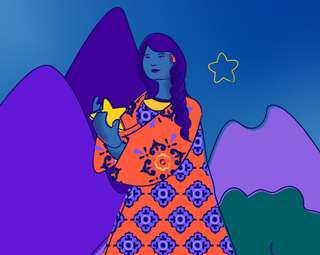Introduction
The 2024 México National Survey on the Mental Health of LGBTQ+ Young People is a pioneering initiative led by The Trevor Project in collaboration with academic researchers from Universidad Nacional Autónoma de México (UNAM) and partner organizations Yaaj Transformando tu Vida A.C. (Yaaj México), Asociación por las Infancias Transgénero A.C. (Infancias Trans).
This effort reveals, for the first time in México, a detailed analysis of the mental health outcomes of LGBTQ+ young people as well as the risk and protective factors associated with their well-being. The data reveal an alarming truth: more than 50% of LGBTQ+ young people in México reported considering suicide in the past year. This painful reality disproportionately affects trans and nonbinary people, with two out of three reporting experiencing these thoughts. Most of those facing these battles are young people between the ages of 13 and 17, a crucial stage of life marked by the search for identity and acceptance.
The Trevor Project
In Collaboration With

Dr. Tania Esmeralda Rocha Sánchez (she/her)
Dr. Rocha serves as a full-time professor and researcher in the Department of Psychology at the National Autonomous University of Mexico (UNAM), where she also holds the position of Coordinator of the Gender and Sexuality Studies Research Group. She is a member of the Council to Prevent and Eliminate Discrimination in Mexico City (COPRED), contributing her expertise to the Multidisciplinary Research Network on Discrimination. Furthermore, she is a member of the International Observatory of Conversion Therapies, which is supported by the Canadian Embassy in Mexico. She has worked with various educational and government institutions on better incorporating the perspective of gender within sexual diversity and human rights. She recently received the “José Toro Alfonso” prize for professional development of psychology in the Americas, awarded by the Inter-American Society of Psychology.
Visit Website
Aline Itzel Blanco Vera (they/she)
Aline is a psychologist in training, feminist, and LGBTI+ activist. She has served as a teacher and workshop leader to high school students, undergraduate students, and public service personnel on topics related to human rights, feminism, sexual diversity, racism, and ableism. Aline has also participated in round table discussions and conferences at the National Autonomous University of Mexico (UNAM). She currently collaborates as a researcher in the Gender and Sexuality Studies Unit of the UNAM, where she is part of the organizing team of various LGBTI+ self-managed groups and a researcher in topics related to the trans population.
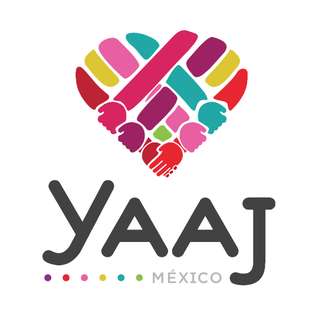
Yaaj México
"Yaaj: Transformando tu vida A.C.” (Yaaj México) is a Mexican civil society organization that works to promote and defend the human rights of the LGBTQ+ community, with a focus on gender and youth. With almost 15 years of experience, Yaaj México has four guiding programs: “LGBT Mexico Youth”, “Diverse Women Yaaj”, “Positive Health” and “Become Stronger." Yaaj is a pioneer in the fight against conversion “therapies” in Mexico. Yaaj has collaborated at a National and International level on research projects within the United Nations System. In 2023, Yaaj was recognized as one of the “50 personalities that transformed Mexico,” reflecting its commitment to inclusion and equality within society.
Visit Website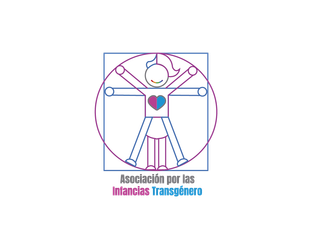
Infancias Trans
Infancias Trans, created in 2018, is a non-profit organization that provides free legal and educational support to families with trans and non-binary children and adolescents.
Visit Website
Key Findings
More than half of LGBTQ+ young people seriously considered suicide in the past year — including 2 in 3 trans and nonbinary young people and nearly half of cisgender young people
1 in 3 LGBTQ+ young people attempted suicide in the past year — including nearly half of trans and nonbinary young people and 1 in 4 cisgender young people
57% of LGBTQ+ young people between the ages 13-17 considered suicide in the past year — compared to 46% of those ages 18-24
Among LGBTQ+ young people who attempted suicide in the past year, 77% reported family as a motivation and 60% reported school as a motivation for the suicide attempt
Less than 22% of LGBTQ+ young people reported having access to an affirming home and only 34% felt fully accepted by their family when they came out or revealed their identity
Having access to affirming spaces, such as a home, is protective against depression, anxiety, and suicide for LGBTQ+ young people
Mental Health & Suicide Risk:
Suicide Risk
More than half of LGBTQ+ young people seriously considered suicide in the past year
including 2 in 3 trans and nonbinary young people and nearly half of cisgender young people
1 in 3 LGBTQ+ young people attempted suicide in the past year
including nearly half of trans and nonbinary young people and 1 in 4 cisgender young people
Rates of seriously considering and attempting suicide among LGBTQ+ young people in the past year
Explore Data by:
-
Ages 13-17
-
Ages 18-24
-
Gay
-
Lesbian
-
Bisexual
-
Queer
-
Pansexual
-
Asexual/
Aromantic -
Heterosexual
-
Questioning
-
Cisgender boy/
man -
Cisgender girl/
woman -
Transgender girl/
woman -
Transgender boy/
man -
Nonbinary, agender, genderfluid, genderqueer
-
Questioning
-
Mestiza/
o/ e -
White
-
Black or Afro-descendant
-
Indigenous
-
Mixed Race
-
Another Race
-
I don't know
-
Northwest
-
Northeast
-
West
-
East
-
North Central
-
South Central
-
Southwest
-
Southeast
* Not significant
LGBTQ+ young people ages 13-17 reported significantly higher suicide risk
With over half (57%) seriously considering suicide in the past year compared to 46% of their peers age 18-24, and 38% attempting suicide in the past year compared to 26% of their peers age 18-24
Motivations for suicide attempt
-
Family
-
School
-
Sexual Orientation
-
Gender Identity
-
Partner
-
Health
-
Bullying
-
Violence
-
Discrimination
What happened after suicide attempt
-
No one found out
-
Recieved therapy
-
Received help from close people
-
Received psychiatric treatment
-
The suicide attempt was ignored
Anxiety & Depression
58% of LGBTQ+ young people reported symptoms of depression
including 67% of trans and nonbinary young people and more than half of cisgender young people
53% of LGBTQ+ young people reported symptoms of anxiety
including 3 in 5 trans and nonbinary young people and almost half of cisgender young people
Anxiety & depression symptoms reported among LGBTQ+ young people
Explore Data by:
-
Ages 13-17
-
Ages 18-24
-
Gay
-
Lesbian
-
Bisexual
-
Queer
-
Pansexual
-
Asexual/
Aromantic -
Heterosexual
-
Questioning
-
Cisgender boy/
man -
Cisgender girl/
woman -
Transgender girl/
woman -
Transgender boy/
man -
Nonbinary, agender, genderfluid, genderqueer
-
Questioning
-
Mestiza/
o/ e -
White
-
Black or Afro-descendant
-
Indigenous
-
Mixed race
-
Another race
-
I don't know
* Not significant
-
Northwest
-
Northeast
-
West
-
East
-
North Central
-
South Central
-
Southwest
-
Southeast
* Not significant
Self-Harm
75% of LGBTQ+ young people reported ever self-harming
including 85% of trans and nonbinary young people and 2 in 3 cisgender young people
Among LGBTQ+ young people who have self-harmed, 80% reported self-harming multiple times
Motivations for self-harm and desired outcome of self-harm
Motivations for self-harm
-
Due to how I was feeling emotionally
-
Problems with family
-
Problems at school
-
Problems with my partner(s)
-
Problems with my health
-
Economic problems
-
Due to being a victim of bullying
-
Due to being a victim of discrimination
-
Due to being a victim of violence
-
Another reason
Desired outcome of self-harm
-
Stop feeling bad
-
Feel better or calm myself
-
To punish myself
-
To end my life
-
Avoid doing anything else
-
Show someone how you felt
LGBTQ+ young people who reported ever having self-harmed
Explore Data by:
Self-harmed ever
-
Ages 13-17
-
Ages 18-24
Self-harmed ever
-
Gay
-
Lesbian
-
Bisexual
-
Queer
-
Pansexual
-
Asexual/Aromantic
-
Heterosexual
-
Questioning
Self-harmed ever
-
Cisgender boy/man
-
Cisgender girl/woman
-
Transgender girl/woman
-
Transgender boy/man
-
Nonbinary, agender, genderfluid, genderqueer
-
Questioning
Self-harmed ever
-
Mestiza/o/e
-
White
-
Black or Afro-descendant
-
Indigenous
-
Mixed race
-
Another race
-
I don't know
Self-harmed ever
-
Northwest
-
Northeast
-
West
-
East
-
North Central
-
South Central
-
Southwest
-
Southeast
Barriers to Care:
Mental Health Care
91% of LGBTQ+ young people desired mental health care in the past
but of those, less than 3 in 5 received it
LGBTQ+ young people in México who searched for mental health care in the past year but could not get it, cited these top ten reasons
-
Financial problems
-
Asking for parental permission
-
Afraid to not be taken seriously
-
Afraid to talk about emotions
-
Transportation problems
-
Afraid it would not work
-
Not allowed by parents
-
Too young/minor
-
Did not want virtual care
-
Afraid of conversion therapy/change efforts
Among LGBTQ+ young people who searched for mental health care in the past year but did not get it, 1 in 5 reported being afraid of conversion therapy or change efforts
Conversion Therapy
Over 1 in 5 LGBTQ+ young people reported being threatened with or subjected to conversion therapy
including 29% of trans and nonbinary young people
LGBTQ+ young people who reported being threatened with or subjected to conversion therapy had nearly double the rate of a past-year suicide attempt
59% of LGBTQ+ young people reported experiencing a change attempt regarding their sexual or gender identity by someone in their life
Among LGBTQ+ young people in México:
21% reported being threatened or subjected to conversion therapy, including 29% of trans & nonbinary young people
-
78% Never threatened with or subjected to conversion therapy
-
12% Ever threatened with conversion therapy
-
9% Ever subjected
LGBTQ+ young people who were threatened with or subjected to conversion therapy
Explore Data by:
-
Gay
-
Lesbian
-
Bisexual
-
Queer
-
Pansexual
-
Asexual/Aromantic
-
Heterosexual
-
Questioning
-
Cisgender boy/man
-
Cisgender girl/woman
-
Transgender girl/woman
-
Transgender boy/man
-
Nonbinary, agender, genderfluid, genderqueer
-
Questioning
-
Mestiza/o/e
-
White
-
Black or Afro-descendant
-
Indigenous
-
Mixed race
-
Another race
-
I don't know
-
Northwest
-
Northeast
-
West
-
East
-
North Central
-
South Central
-
Southwest
-
Southeast
LGBTQ+ young people who attempted suicide in the past year, comparison across those threatened with or subjected to conversion therapy
-
Ever subjected to conversion therapy
-
Ever threatened with conversion therapy
-
Never threatened with or subjected to conversion therapy
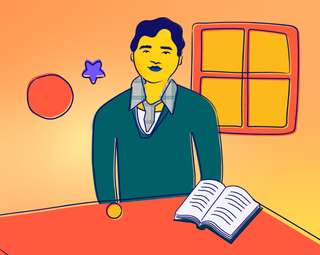
Risk Factors for LGBTQ+ Young People
LGBTQ+ young people who reported experiences of anti-LGBTQ+ victimization — including being physically threatened or harmed, discriminated against for being LGBTQ+, or being kicked out or forced to run away from their homes — reported significantly higher rates of past-year suicide attempts compared to those who did not report these experiences.
Risk Factors for LGBTQ+ Young People:
Threats and Experiences of Physical Harm
28% of LGBTQ+ young people reported ever being physically threatened or harmed due to their sexual orientation or gender identity
with nearly half of them having experienced threats or harms in the past year
12% of LGBTQ+ young people in México reported being physically threatened or harmed due to their sexual orientation in the past year
Nearly 1 in 5 trans and nonbinary young people reported being physically threatened or harmed due to their gender identity in the past year
Rates of LGBTQ+ young people who have been threatened or physically harmed in the past year
Explore Data by:
-
Ages 13-17
-
Ages 18-24
* Not significant
Due to their sexual orientation
-
Gay
-
Lesbian
-
Bisexual
-
Queer
-
Pansexual
-
Asexual/Aromantic
-
Heterosexual
-
Questioning
-
Cisgender boy/
man -
Cisgender girl/
woman -
Transgender girl/
woman -
Transgender boy/
man -
Nonbinary, agender, genderfluid, genderqueer
-
Questioning
-
Mestiza/
o/ e -
White
-
Black or Afro-descendant
-
Indigenous
-
Mixed Race
-
Another Race
-
I don't know
-
Northwest
-
Northeast
-
West
-
East
-
North Central
-
South Central
-
Southwest
-
Southeast
* Not significant
Past-year suicide attempts among LGBTQ+ young people, comparison by past-year physical threats or harm
Suicide attempt rate in the past year
-
Experienced SOGI-based physical threat or harm in the past year
-
Did not experience SOGI-based physical threat or harm in the past year
Anti-LGBTQ+ Discrimination
Over half of LGBTQ+ young people reported ever feeling discriminated against due to their sexual orientation or gender identity
with 71% of them having experienced anti-LGBTQ+ discrimination in the past year
34% of LGBTQ+ young people in México reported being discriminated against due to their sexual orientation in the past year
Nearly half of trans and nonbinary young people in México reported being discriminated against due to their gender identity in the past year
Rates of LGBTQ+ young people who have felt discriminated against in the past year
Explore Data by:
-
Ages 13-17
-
Ages 18-24
Due to their sexual orientation
-
Gay
-
Lesbian
-
Bisexual
-
Queer
-
Pansexual
-
Asexual/Aromantic
-
Heterosexual
-
Questioning
-
Cisgender boy/
man -
Cisgender girl/
woman -
Transgender girl/
woman -
Transgender boy/
man -
Nonbinary, agender, genderfluid, genderqueer
-
Questioning
-
Mestiza/
o/ e -
White
-
Black or Afro-descendant
-
Indigenous
-
Mixed Race
-
Another Race
-
I don't know
* Not significant
-
Northwest
-
Northeast
-
West
-
East
-
North Central
-
South Central
-
Southwest
-
Southeast
Reported location(s) and person(s) involved in anti-LGBTQ+ discrimination
Reported location(s) of experienced discrimination regarding LGBTQ+ identity
-
Home or family
-
Educational spaces
-
Public spaces
-
Transportation
-
Places of leisure
-
Public institutions
-
Workplaces
-
Health services
Reported person(s) who engaged in discrimination of LGBTQ+ identity
-
Person at home or family
-
Peers at school
-
Unknown person
-
A parent of a friend
-
Friend
-
Religious leaders
-
Professors or school staff
-
Partner
Past-year suicide attempts among LGBTQ+ young people, comparison by anti-LGBTQ+ discrimination
-
Felt discriminated against in the past year
-
Did not feel discriminated against in the past year
Homelessness, Running Away, or Being Kicked Out
14% of LGBTQ+ young people reported ever being homeless, ran away, or being kicked out by their parents/caregivers
including 17% of trans and nonbinary and 12% of cisgender young people
2 in 5 said they had to run away or were kicked out because of their LGBTQ+ identity
Rates of LGBTQ+ young people who ever had to run away or were kicked out
Explore Data by:
-
Ages 13-17
-
Ages 18-24
-
Cisgender boy/man
-
Cisgender girl/woman
-
Trans girl/woman
-
Trans boy/man
-
Nonbinary, agender, genderfluid, genderqueer
-
Questioning
-
Mestiza/o/e
-
White
-
Black or Afro-descendant
-
Indigenous
-
Mixed race
-
Another race
-
I don't know
Past-year suicide attempts among LGBTQ+ young people, comparison by ever having to run away or ever been kicked out by their parent(s) or caregiver(s)
-
Ever ran away or kicked out by caregivers
-
Never ran away or kicked out by caregivers
Past-year suicide attempts among LGBTQ+ young people, comparison by ever having to run away or ever been kicked out due to their LGBTQ+identity
-
Ever ran away or kicked out due to LGBTQ+ identity
-
Ran away or kicked out for another reason
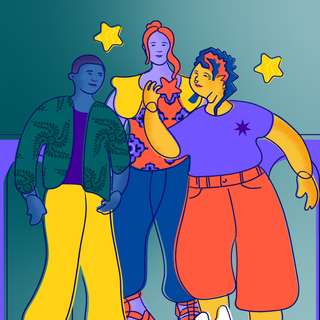
Supporting LGBTQ+ Young People
Having access to LGBTQ+-affirming spaces — such as a home — as well as living in an accepting community is protective against depression, anxiety, and suicide. Additionally, having support from others as well as having positive feelings for one’s own LGBTQ+ identity were found to be protective factors.
Supporting LGBTQ+ Young People:
Support for LGBTQ+ Identity
LGBTQ+ young people who have support for their sexual orientation report lower rates of depression and past-year suicide attempts
Trans and nonbinary young people who have gender identity support from friends, as well as those who have many people in their lives who respect their pronouns, report significantly lower rates of attempting suicide in the past year
LGBTQ+ young people in México who were fully accepted by their families when they shared their identity
-
66% No
-
34% Yes
Family reaction to coming out
-
Not out
-
Accepted, but neglected
-
Respected, accepted, and integrated
-
No support or acceptance
-
Defended LGBTQ+ people
-
Stopped communicating
-
Forced to see a provider, intent to change
-
Placed in therapy, intent to change
-
Harrassed to change
-
Other
Supportive people in the lives of LGBTQ+ young people
-
LGBTQ+ friend
-
Non-LGBTQ+ friend
-
Sibling
-
Another family member
-
Partner
-
Mother
-
Teacher/
school counselor -
Father
-
Friend's parent
-
Mental health provider
-
Colleague
-
Medical provider
-
Partner's parent
-
Guardian
-
Boss
-
Coach
-
Someone else
Gender Affirmation
How many people in your life respect your pronouns?
-
11% None
-
55% A few
-
16% Many
-
17% All
Past-year suicide attempts among trans and nonbinary young people, comparison by people in their lives who respect their pronouns
-
No one respects pronouns
-
A few respect pronouns
-
Many respect pronouns
-
All respect pronouns
Considering use of hormones/blockers and current use of hormones/blockers among trans and nonbinary young people
Considering use of hormones / blockers
-
38% No
-
66% Yes
Current use of hormones / blockers
-
48% No, and I don't want to
-
49% No, but I want to
-
3% Yes
Past-year suicide attempts among trans and nonbinary young people, comparison by use of hormones/blockers
-
No, don't want hormones / blockers
-
No, but want hormones / blockers
-
Yes, using hormones / blockers
Affirming Communities & Spaces
40% of LGBTQ+ young people reported their community was somewhat or very accepting of LGBTQ+ people
while only 22% reported having access to an affirming home
LGBTQ+ young people who reported living in accepting communities, comparison by region
-
Northwest
-
Northeast
-
West
-
East
-
North Central
-
South Central
-
Southwest
-
Southeast
Suicide risk and mental health outcomes for LGBTQ+ young people, comparison by accepting communities
Explore Data by:
-
Community is somewhat or very unaccepting
-
Community is somewhat or very accepting
-
Community is somewhat or very unaccepting
-
Community is somewhat or very accepting
-
Community is somewhat or very unaccepting
-
Community is somewhat or very accepting
LGBTQ+ young people found affirming spaces at
-
School
-
Online
-
Home
-
Community
-
Work
-
Religious place
-
Somewhere else
-
Nowhere
Past-year suicide attempts among LGBTQ+ young people, comparison by LGBTQ+-affirming spaces
Explore Data by:
-
Non LGBTQ+-affirming
-
LGBTQ+-affirming
-
Non LGBTQ+-affirming
-
LGBTQ+-affirming
-
Non LGBTQ+-affirming
-
LGBTQ+-affirming
Positive Feelings about LGBTQ+ Identity
69% of LGBTQ+ young people report having positive feelings about their own sexual orientation or gender identity
including self-acceptance, happiness, and pride about who they are
LGBTQ+ young people who felt happy about their LGBTQ+ identity were less likely to report a past-year suicide attempt
How do you feel about your sexual orientation and/or gender identity?
-
3% I don't like who I am
-
12% I don't fully accept myself
-
16% I don't feel bad about who I am, however, I prefer that others do not know
-
23% I accept who I am
-
18% I am happy about who I am
-
28% I am proud of who I am
Past-year suicide attempts among LGBTQ+ young people, comparison by feelings about one’s LGBTQ+ identity
Explore Data by:
-
I don't like who I am
-
I don't fully accept myself
-
I don't feel bad about who I am, however, I prefer that others do not know
-
I accept who I am
-
I am proud of who I am
-
I am happy about who I am
-
I don't like who I am
-
I don't fully accept myself
-
I don't feel bad about who I am, however, I prefer that others do not know
-
I accept who I am
-
I am proud of who I am
-
I am happy about who I am
-
I don't like who I am
-
I don't fully accept myself
-
I don't feel bad about who I am, however, I prefer that others do not know
-
I accept who I am
-
I am proud of who I am
-
I am happy about who I am
Methodology
The content and methodology for The Trevor Project’s 2023 México National Survey on the Mental Health of LGBTQ+ Young People were approved by an independent Institutional Review Board in the United States.
Suggested citation:
Rocha-Sánchez, T.E., Blanco-Vera, A. I., Taylor, A.B., Hobaica, S., Lara, E.A., Kofke, L., Jarrett, B., Muñoz, G., & Nath, R. (2024). 2024 México national survey on the mental health of LGBTQ+ young people. West Hollywood, California: The Trevor Project. https://thetrevorproject.mx/encuesta/2024/en/
This research was led by The Trevor Project's Research Team in the United States, in collaboration with our academic partners Dr. Tania Esmeralda Rocha Sánchez and Aline Itzel Blanco Vera at Universidad Nacional Autónoma de México. The authors acknowledge the contributions of the following individuals: Dr. Jonah DeChants, Dr. Myeshia Price, Dr. Will Cole, Marissa Cohnen, Nolan Scott, Nathanio Strimpopulos, Zach Eisenstein, Nicholas Turton, Elliott Sylvester, Kevin Wong, Pablo Aguilera, Javier Hernández, Pamela Castillo, Gloria Ruiz, Steve O'Donoghue, Paul Pham, Megan Ford, Miranda Jaramillo, Nelson Fernandez, William Young, Yaaj Transformando tu Vida A.C. (Yaaj México), Asociación por las Infancias Transgénero A.C. (Infancias Trans), and The Trevor Project México. Special thanks are also extended to all the participants for their valuable time and insights.
